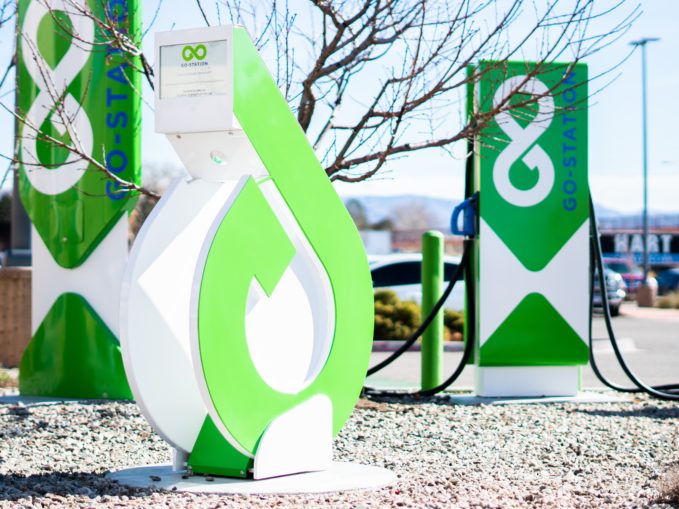
By Louis Efron
Will your next package or pizza be delivered by an electric vehicle? Will you be ushered to your destination by an electric Lyft or your children taken to school in an electric bus?
By 2040, there is a good chance, as one-third of commercial fleets globally could be electric. Organizations such as Amazon, UPS, and DHL are all investing in electric fleets. FedEx will make all pick-up and deliveries in electric vehicles by 2040. President Biden also has plans for all his federal fleets to go electric.
According to Heather Flanagan of CleanTechnica, the key driver behind the transition to EV fleets is utilization. “A typical passenger car vehicle in the US might travel around 12,000 miles per year, but a transit bus or Class 8 truck will see up to five times that usage. Consequently, reliability, longevity, and associated maintenance costs are on an entirely different scale for fleet owners,” Flanagan argues in her recent article, How Fleets Will Propel The Consumer EV Market.
Fleets are going electric fast, and big industry players like Daimler, Cummins, Peterbilt, and Volvo sell commercial EVs to support the transition. In addition, start-ups such as BYD, GreenPower, Orange EV, and Proterra are filling in the gaps for commercial EV supply.
Unfortunately, customer-focused charging technology has not kept pace with the advancement of EVs. It is not uncommon for consumer EV drivers to pull up to a charging site that is not working or with long wait times. This dynamic is simply not sustainable and certainly not an option for commercial fleet operators who must keep their vehicles charged and on the road to support their business and customers.
By helping commercial fleet operators design, deploy, operate, and streamline EV charging infrastructure, companies such as Go-Station provide the missing link in the effective transition to electric. The organization is also helping educate clients and industries on the benefits of owning and operating EV’s.
One of Go-Station’s clients, Auto Driveaway, a leading vehicle relocation and storage company founded in 1952, is mindful of the impact that electrification will have on the fleet ecosystem.
“We are pleased to be working with Go-Station as we evaluate the optimal way to address the transition to electrification. EV adoption is gaining momentum with commercial fleets, and we expect that pace to continue to increase across fleet sectors. EVs will be a critical part of the future of fleet, and we need to ensure that we position ourselves to support our customers’ transportation and vehicle storage needs. With new vehicle platforms and technologies, it is an exciting opportunity to innovate and grow,” says Matthew Salm, Chief Operating Officer.
There are numerous reasons why going electric makes sense for fleets. Electric vehicles are good for the environment and communities (they do not contribute to noise or air pollution), are more affordable to operate, and create loyal customers who care about our planet.
“We are committed to helping drivers and commercial partners benefit, thrive, and overcome hurdles in a world rapidly transitioning to electric vehicles. My team and I drive EV’s and love the environment and technology. Our driving force is to help disruption in favor of technologies and business models that make the world better,” Ray Addison, Go-Station’s Vice-President and CMO, says.
In addition to Go-Station’s focus on the design and deployment of EV charging infrastructure, the company also offers customers access to more than 4,000 public EV charging sites across North America via their dynamic customer-focused charging app.
For more information about Go-Station or going electric, please visit Go-Station.com



